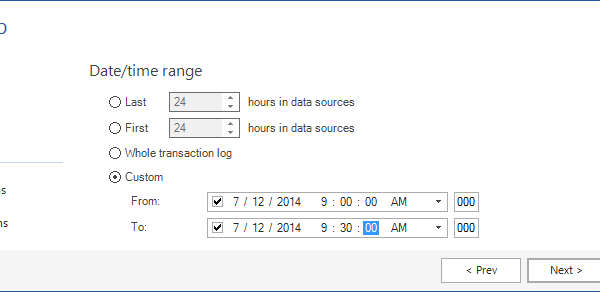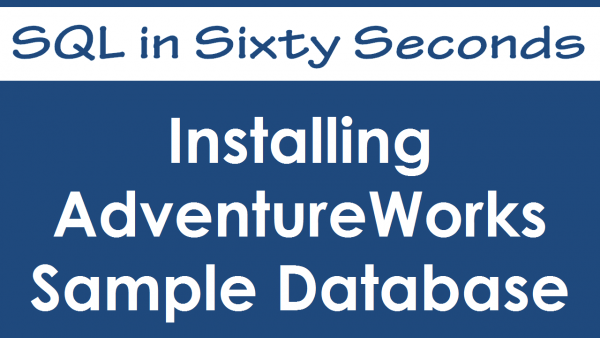Changing times and a super busy lifestyle have rendered most of us powerless when it comes to doing what we love to do. I feel that a man never ceases to learn and his sole aim is to seek knowledge, and keep growing. However, our tight schedules and packed calendars mean that we really have to struggle to take some time out and follow the path towards learning. Let us learn about the Live Virtual Classroom.
SQL SERVER – Finding Out What Changed in a Deleted Database – Notes from the Field #041
SQL Authority News – FalafelCON 2014: 2 days with the Best Developers in the World
SQL SERVER – Integrate Your Data with Skyvia – Cloud ETL Solution
Database – Beginning with Cloud Database As A Service
SQL SERVER – How to Roll Back SQL Server Database Changes
In a perfect scenario, no unexpected and unplanned changes occur. There are no unpleasant surprises, no inadvertent changes. However, even with all precautions and testing, there is sometimes a need to revert a structure or data change. Let us learn about How to Roll Back SQL Server Database Changes.
SQL Authority News – Download and Install AdventureWorks 2014 Sample Databases
If you are using SQL Server there are good chances that you are familiar with AdventureWorks. AdventureWorks is a Sample Database shipped with SQL Server and it can be downloaded from GitHub site. AdventureWorks have replaced Northwind and Pubs from the sample database in SQL Server 2005. The Microsoft team keeps updating the sample database as they release new versions. I use the AdventureWorks database for most of my example, as it is easy to use sample database which is accessible for most of the people out there. Let us learn to install AdventureWorks.
SQL SERVER – Microsoft SQL Server Migration Assistant V6.0 Released
SQL SERVER – Introduction to SQL Server 2014 In-Memory OLTP
In SQL Server 2014 Microsoft has introduced a new database engine component called In-Memory OLTP aka project “Hekaton” which is fully integrated into the SQL Server Database Engine. It is optimized for OLTP workloads accessing memory resident data. In-memory OLTP helps us create memory optimized tables which in turn offer significant performance improvement for our typical OLTP workload.





